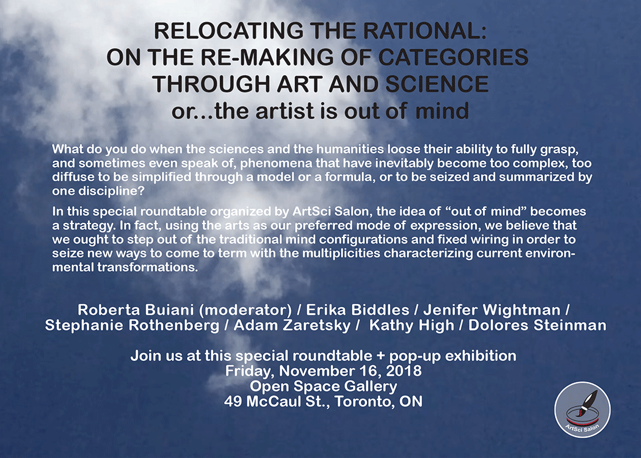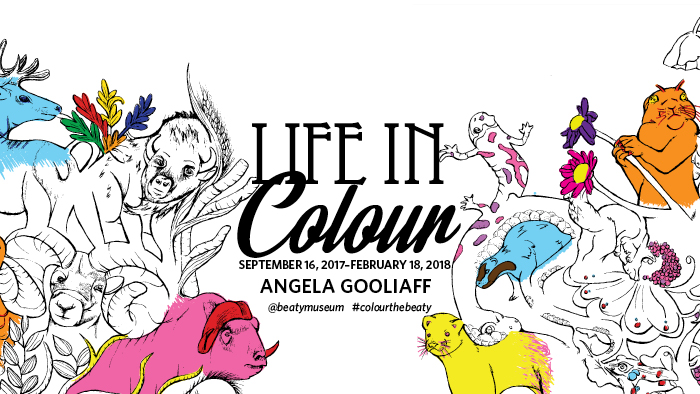Casting an eye back isn’t one of my strong points. Thankfully I can’t be forced into making a top 10 list of some kind. Should someone be deeply disappointed (tongue in cheek) that I failed to mention one of the big 2021 stories featured here, please leave a note in the Comments for this blog and I’ll do my best to add it.
Note: I very rarely feature space exploration unless there’s a nanotechnology or other emerging technology angle to it. There are a lot of people who do a much better job of covering space exploration than I can. (If you’re interested in an overview from a Canadian on the international race to space, you can start with this December 29, 2021 posting “Looking back at a booming year in space” by Bob McDonald of CBC’s [Canadian Broadcasting Corporation] Quirks & Quarks science radio programme.)
Now, onto FrogHeart’s latest year.
2021
One of the standout stories in 2020/21 here and many, many places was the rise of the biotechnology community in British Columbia and elsewhere in Canada. Lipid nanoparticles used in COVID-19 vaccines became far better known than they ever had before and AbCellera took the business world by storm as its founder became a COVID billionaire.
Here is a sampling of the BC biotechnology/COVID-19 stories featured here,
- “Avo Media, Science Telephone, and a Canadian COVID-19 billionaire scientist” December 30, 2020 posting
- “Why is Precision Nanosystems Inc. in the local (Vancouver, Canada) newspaper?” January 22, 2021 posting Note: The company is best known for its work on lipid nanoparticles
- “mRNA, COVID-19 vaccines, treating genetic diseases before birth, and the scientist who started it all” March 5, 2021 posting Note: This posting also notes a Canadian connection in relation mRNA in the subsection titled “Entrepreneurs rush in”
- “Getting erased from the mRNA/COVID-19 story” August 20, 2021 posting Note: This features a fascinating story from Nathan Vardi (for Forbes) of professional jealousies, competitiveness, and a failure to recognize opportunity when she comes visiting.
- “Who’s running the life science companies’ public relations campaign in British Columbia (Vancouver, Canada)?” August 23, 2021 posting Note: This explores the biotech companies, the network, and provincial and federal funding, as well as, municipal (City of Vancouver) support and more.
Sadly, I did not have time to feature this September 14, 2021 article (The tangled history of mRNA vaccines; Hundreds of scientists had worked on mRNA vaccines for decades before the coronavirus pandemic brought a breakthrough.) by Elie Dolgin for Nature magazine.
Dolgin starts the story in 1987 and covers many players that were new to me although I did recognize some of the more recent and Canadian players such as Pieter Cullis and Ian MacLachlan. *ETA January 3 ,2021: Cullis and MacLachlan are both mentioned in my ‘Getting erased ..” August 20, 2021 posting.* Fun fact: Pieter Cullis was just named an Officer to the Order of Canada (from the Governor General’s December 29, 2021 news release),
Pieter Cullis, O.C.
Vancouver, British ColumbiaFor his contributions to the advancement of biomedical research and drug development, and for his mentorship of the next generation of scientists and entrepreneurs.
Back to this roundup, I got interested in greener lithium mining, given its importance for batteries in electric vehicles and elsewhere,
- ‘Greener’ lithium mining in Canada February 23, 2021 posting
- “Litus, a University of Calgary spin-off company, and its lithium extraction process” August 3, 2021 posting
2021 seems to have been the year when the science community started podcasting in a big way. Either the podcast was started this year or I stumbled across it this year (meaning it’s likely a podcast that is getting publicized because they had a good first year and they want more listeners for their second year),
- “New podcast—Mission: Interplanetary and Event Rap: a one-stop custom rap shop Kickstarter” April 30, 2021 posting
- “Superstar engineers and fantastic fiction writers podcast series” June 28, 2021 posting
- “Periodically Political: a Canadian podcast from Elect STEM” August 16, 2021 posting
- “Unlocking Science: a new podcast series launches on November 16, 2021” November 16, 2021 posting
- “Lost Women of Science” December 2, 2021 posting
- “Nerdin’ About and Science Diction: a couple of science podcasts” Note: Not posted but maybe one day. Meanwhile, here they are:
- Nerdin’ About describes itself as, “… a podcast where passionate nerds tell us about their research, their interests, and what they’ve been Nerdin’ About lately. A spin-off of Nerd Nite Vancouver, a community lecture series held in a bar, Nerdin’ About is here to explore these questions with you. Hosted by rat researcher Kaylee Byers (she/her) and astronomy educator Michael Unger (he/him). Elise Lane (she/her) is our Mixing Engineer. Music by Jay Arner. Artwork by Armin Mortazavi.”
- Science Diction is a podcast offshoot of Science Friday (SciFri), a US National Public Radio (NPR) programme. “… Hosted by SciFri producer and self-proclaimed word nerd Johanna Mayer, each episode of Science Diction digs into the origin of a single word or phrase, and, with the help of historians, authors, etymologists, and scientists, reveals a surprising science connection. Did you know the origin of the word meme has more to do with evolutionary biology than lolcats? Or that the element cobalt takes its name from a very cheeky goblin from German folklore? …”
- “Podcast episode from the Imperial College London features women’s hearts, psychedelic worldviews, and nanotechnology for children” Note: Not posted but maybe one day.
- “Alberta-based podcast explores AI (Artificial Intelligence)” Note 1: You’ll find season one and two on the page I’ve linked to; just keep scrolling. Note 2: Not posted but maybe one day.
- “Own the Science Podcast/À vous la science balado” Note: Not posted but maybe one day.
Integrating the body with machines is an ongoing interest of mine, these particular 2021 postings stood out but there are other postings (click on the Human Enhancement category or search the tag ‘machine/flesh’),
- “The Internet of Bodies and Ghislaine Boddington” June 22, 2021 posting
- “A new generation of xenobots made with frog cells” June 21, 2021 posting
I wrote a few major (long) pieces this year,
- “Interior Infinite: carnival & chaos, a June 26 – September 5, 2021 show at Polygon Art Gallery (North Vancouver, Canada)” July 26, 2021 posting Note: While this isn’t an art/sci posting it does touch on a topic near and dear to my heart, writers. In particular, the literary theorist, Mikhail Mikhailovich Bakhtin.
- “The metaverse or not” October 22, 2021 posting Note: What can I say? The marketing hype got to me.
- “True love with AI (artificial intelligence): The Nature of Things explores emotional and creative AI (long read)” December 3, 2021 posting
2022 and contronyms
I don’t make psychic predictions. As far as I’m concerned, 2022 will be a continuation of 2021, albeit with a few surprises.
My focus on nanotechnology and emerging technologies will remain. I expect artificial intelligence, CRISPR and gene editing (in general), quantum computing (technical work and commercialization), and neuromorphic computing will continue to make news. As for anything else, well, it wouldn’t be a surprise if you knew it was coming.
With regard to this blog, I keep thinking about cutting back so I can focus on other projects. Whether I finally follow through this year is a mystery to me.
Because words and writing are important to me, I’d like to end the year with this, which I found in early December 2021. From “25 Words That Are Their Own Opposites” on getpocket.com by Judith Herman originally written for “Mental Floss and … published June 15, 2018,”
Here’s an ambiguous sentence for you: “Because of the agency’s oversight, the corporation’s behavior was sanctioned.” Does that mean, “Because the agency oversaw the company’s behavior, they imposed a penalty for some transgression,” or does it mean, “Because the agency was inattentive, they overlooked the misbehavior and gave it their approval by default”? We’ve stumbled into the looking-glass world of contronyms—words that are their own antonyms.
1. Sanction (via French, from Latin sanctio(n-), from sancire ‘ratify,’) can mean “give official permission or approval for (an action)” or conversely, “impose a penalty on.”
2. Oversight is the noun form of two verbs with contrary meanings, “oversee” and “overlook.” Oversee, from Old English ofersēon (“look at from above”) means “supervise” (medieval Latin for the same thing: super-, “over” plus videre, “to see.”) Overlook usually means the opposite: “to fail to see or observe; to pass over without noticing; to disregard, ignore.”
3. Left can mean either remaining or departed. If the gentlemen have withdrawn to the drawing room for after-dinner cigars, who’s left? (The gentlemen have left and the ladies are left.)
4. Dust, along with the next two words, is a noun turned into a verb meaning either to add or to remove the thing in question. Only the context will tell you which it is. When you dust are you applying dust or removing it? It depends whether you’re dusting the crops or the furniture.
…
The contronym (also spelled “contranym”) goes by many names, including auto-antonym, antagonym, enantiodrome, self-antonym, antilogy and Janus word (from the Roman god of beginnings and endings, often depicted with two faces looking in opposite directions). …
Herman made liberal use, which she acknowledged, of the Mark Nichol article/list, “75 Contronyms (Words with Contradictory Meanings)” on Daily Writing Tips (Note: Based on the ‘comments’, Nichol’s list appears to be have been posted sometime in 2011),
…
3. Bill: A payment, or an invoice for payment
4. Bolt: To secure, or to flee
…
46. Quantum: Significantly large, or a minuscule part
47. Quiddity: Essence, or a trifling point of contention
…
68. Trim: To decorate, or to remove excess from
69. Trip: A journey, or a stumble
…
Happy 2022!

